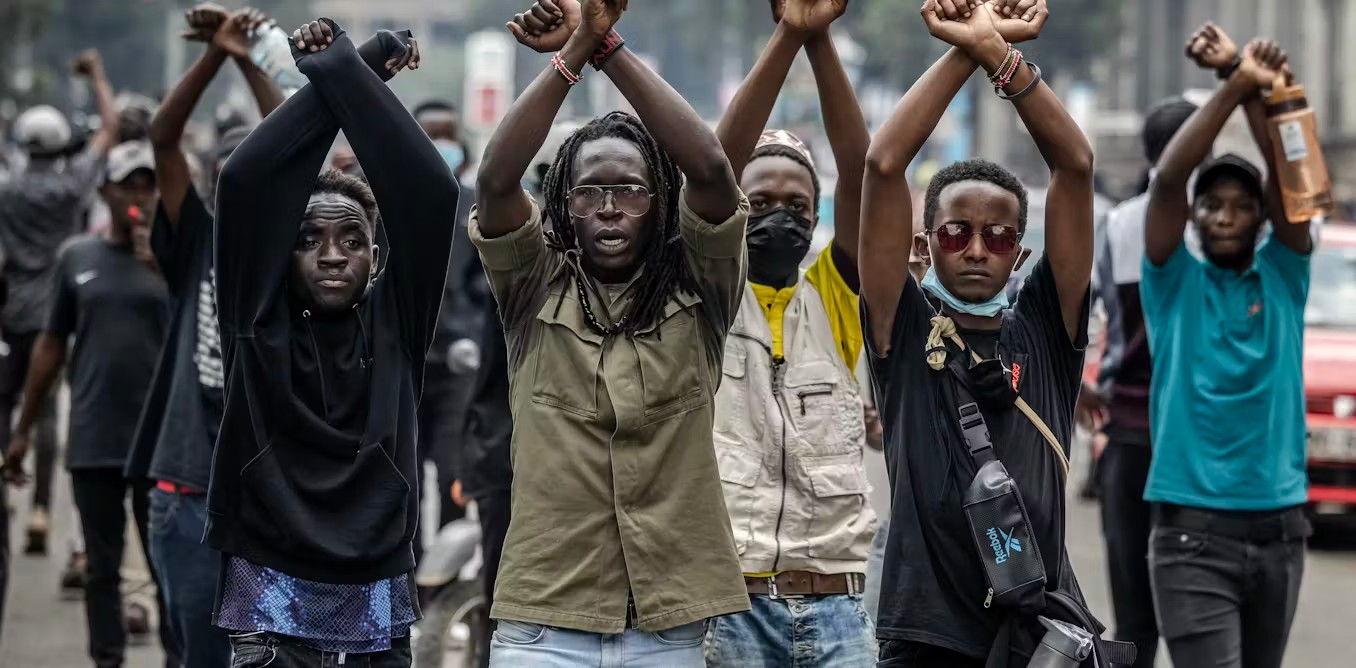- On June 9 this year, young activists gathered in Nairobi to protest the death of blogger Albert Ojwang in police custody. Tear gas flew followed by heartbreaking speeches by loved ones. Police brutality felt like a broken record.
In 3 days, Kenya will mark one year since June 25, 2024, the day young voices carried their phones into the streets and changed history.
Back then, Gen Z Kenyans used hashtags like #RejectFinanceBill2024, #OccupyParliament, and #RutoMustGo to build a movement online. They did not wait for leaders. They led. They made memes, shared Tik Toks, and even taught people about the bill in local languages. They showed everyone what was coming.
Protests quickly swept the country starting on June 18. By June 20, police control was armed with tear gas and live bullets. Thousands of people stormed Parliament on June 25 and began chanting, climbing walls, and looting. At least 19 people had died and more than 200 had been injured by the end of that day.
On June 26, President Ruto gave a speech. He refused to sign the bill, saying he "conceded." On June 28, he formally withdrew it. It was amazing how people could influence power and government decisions.
Kenya is still shaped by the movement's echoes a year later. The 2025 budget's avoiding of new taxes and emphasis on increased tax collection are clear indications of ongoing caution.
Read More
However, memory has a cost. Arrests, kidnappings, and torture were commonplace for young demonstrators. A few vanished. Some people continue to wait for justice, which seems to take a long time. They are not silent, though.
On June 9 this year, young activists gathered in Nairobi to protest the death of blogger Albert Ojwang in police custody. Tear gas flew followed by heartbreaking speeches by loved ones. Police brutality felt like a broken record.
As we count down the days to June 25, voices are rising again, and questions are being asked. This moment offers a new chance to ask hard questions; Will Kenyans still rise when they feel unheard? Will the new generation trust that power can change? Will the state listen or respond with force?
For the families of those who sadly lost their loved ones last year, the grief still remains. For the business owners, peace of mind is still fragile, and the expense of damage was high. Fear and hope coexist for the activists. The fear of memory loss and hope for a long-lasting change.
A lesson learned in 2024 is phones can expose and show the truth. Screens can spread courage as well as reveal faces and voices, when carried together, can echo louder than fear and even mobilize a movement.
A year later, the drumbeats of digital rebellion still begin with a phone. Today’s screens hold more power than ever before. They hold history. They hold witness. And they hold warnings that justice must not sleep again.
And when June 25 arrives, many young voices will tell a story, not just of how they ran in the streets against the government a year ago, but how they raised their voices, fought for change and left a mark in the history of Kenya.




-1772102940-md.jpg)


-1772090413-1772095461-md.jpg)


-1772102940-sm.jpg)

